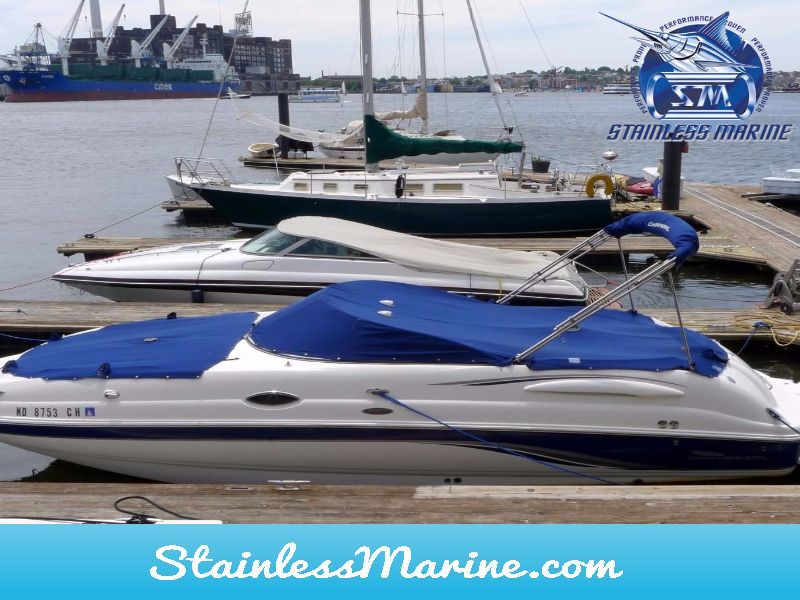Marine Engine Parts Supplier Recommends the Importance of Good Boating and Fishing Manners
Your Marine Engine Parts Experts Discuss How Boating and Fishing Manners Don't Always Come Easy
Stainless Marine your marine boat parts specialists would like to share with these topics we thought would be of interest to you this month regarding the importance of good boating and fishing manners.
Your marine boat parts professionals know that fishing is one of our nation's most popular outdoor recreational activities. Being a fisherman is about respecting the areas you fish and sustaining the populations of your favorite species.
By practicing responsible fishing principles, you help protect access to recreational fishing areas for years to come.
When you're out on the water enjoying the sport you love, keep in mind the following tips for responsible fishing:
Travel Responsibly
Only boat in areas open to your type of watercraft. Keep to designated waterways and launch your boat only from designated ramps.
Respect the Rights of Others
Be considerate to other anglers, as well as swimmers, skiers, boaters, and divers others who are on and around waterways to fishing spots.
You can find more information as well as get assistance on marine boat parts and on the importance of good boating and fishing manners at Stainless Marine.
Your marine boat parts analysts say to obtain a map or chart of your destination and determine which areas are open to your type of boat and fishing.
Do Your Part
Leave the area better than you found it. Pack out what you pack in and carry a trash bag to pick up litter left by others.
Use artificial lures whenever possible. Live bait can accidentally introduce exotics to an area. If you do use live bait, use bait native to the area.
If practicing catch-and-release, use barbless single hooks and keep fish in the water as much as possible. When holding a large fish for a photo, hold it horizontally and support its weight.
Before and after a trip, wash your gear, watercraft and support vehicle to reduce the spread of invasive species. Drain livewells, bilge water and transom wells at the boat launch prior to leaving.
Boat etiquette on and off the water is an ever-increasing issue. Ask any boater what they perceive to be the biggest issue on the water, and they will inevitably go into a story about an inconsiderate boater.
Boat ramp etiquette seems to be the biggest hot button of any boater. These incidents include someone waiting until they get to the launch pad before rigging a boat for launching and loading their gear into the boat; or de-rigging and unloading the boat at the launch pad on return from the water, rather than moving to a de-rigging area after the boat is loaded on the trailer.
One of the best ways to be certain you're not on the wrong end of one of these situations is to get yourself familiar with the protocol at a launching facility before actually launching your boat.
When it's your turn to launch, do it as quickly as you can do it comfortably, and move your boat aside, away from the launching side of the dock.
When out on the water always be observant of what is going on around you, especially when underway. Watch what other boats are doing, and how anglers are fishing.
Following the golden rule “Do unto others…” should help keep you out of trouble.
Once you get out to your favorite fishing spot safely, you can concentrate on fishing. And maybe even catch a few. After all, they call it fishing, but the goal is catching.
So don't forget these helpful reminders on the importance of having good boating and fishing manners. 1) Being a fisherman is about respecting the areas you fish and sustaining the populations of your favorite species; 2) Boat etiquette on and off the water is an ever-increasing issue; and 3) remember to follow the Golden Rule.
Learn more at Stainless Marine and see how they have more information on marine boat parts and on the importance of having good boating and fishing manners.
#Marine Boat Parts
via Boating Etiquette On and Off the Water

